
Book sharing videos for caregivers and EY practitioners
As part of PEDAL's Playtime with Books project, we created two videos for our YouTube channel that explain what book sharing is, how to do it, how it benefits children and what it might look like.

The Oxford Brain Story: Embedding an understanding of the importance of the early years
In this PEDAL Conference 2024 keynote, Louise Dalton presents her programme of work entitled the Oxford Brain Story.
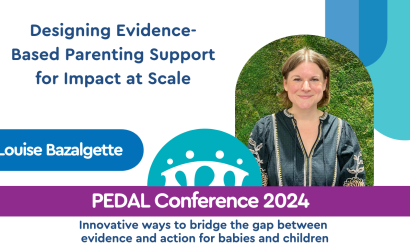
Designing Evidence-Based Parenting Support for Impact at Scale
In this PEDAL Conference 2024 keynote, Louise Bazalgette speaks about the scale of the challenge in closing the gap in early years outcomes in the UK.
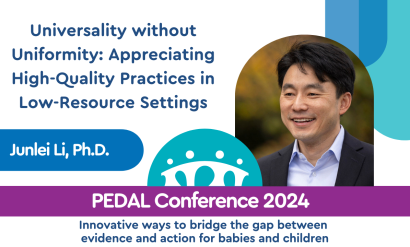
Universality without Uniformity: Appreciating High-Quality Practices in Low-Resource Settings
In this PEDAL Conference 2024 keynote, Professor Junlei Li speaks about the power of everyday interactions in early childhood.
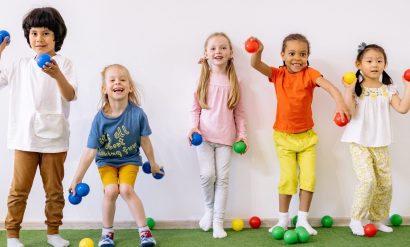
Infographic on Children’s Executive Functions
This infographic on executive functions can be shared with ECD practitioners, teachers, parents, caregivers, health professionals, and anyone else interested in children’s cognitive development.
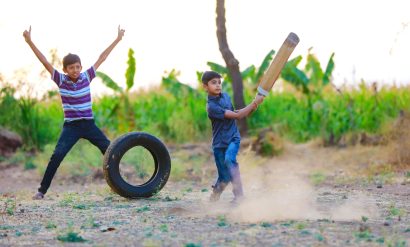
Learning through play in Global Majority countries: Reflections from the PEDAL Centre on understanding and adapting the concept in four different contexts
This paper in the International Journal of Play interrogates the concept of learning through play in different global contexts.
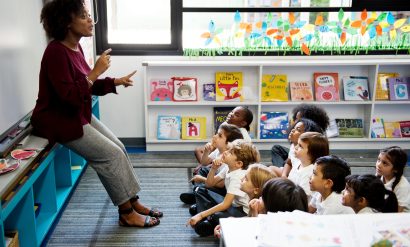
Staying self-regulated in the classroom: The role of children’s executive functions and situational factors
We wanted to explore how an individual child's self-regulation might vary between different activities.
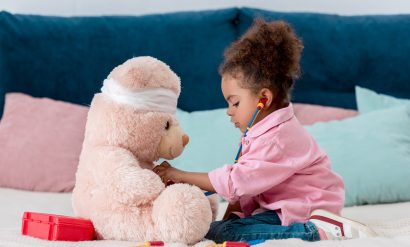
Centring children’s lived experiences in understanding the importance of play in hospitals
We wanted to understand what playing in hospital is like from the perspectives and experiences of young children themselves.
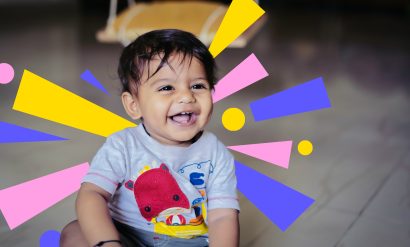
Using play to help the world’s children to heal, learn and thrive: David Whitebread Memorial Lecture 2024
This is a recording of the 2024 David Whitebread memorial lecture, on the first International Day of Play. The lecture was given by Dr Erum Mariam, Executive Director of BRAC Institute of Educational Development, and was followed by a panel discussion with global experts.
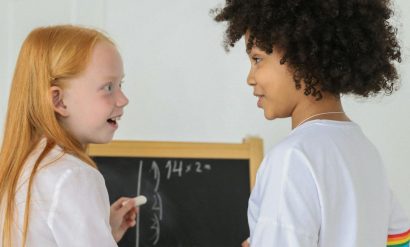
A playful, evidence-informed approach to maths education
How PEDAL research can help a government committed to improving maths outcomes to think more creatively about how to achieve this goal.

Listening to children with empathy – the ethical case
In this piece, Soizic le Courtois argues that advice given to parents should draw on scientific evidence about children's subjective wellbeing, children's perspectives and the contribution of any practice to children's development and outcomes. We should also be attuned to our empathetic responses to children, which can give us clues about the "right" thing to do.
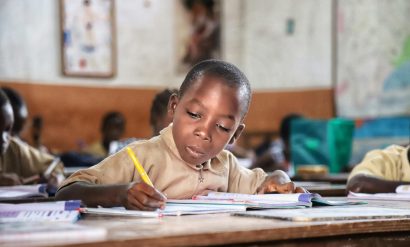
Creating Classrooms for Change: Developing cognitive flexibility in schools in Rwanda
This research looked at how schools in Rwanda foster students’ skills for adaptability - their capacity to create, innovate and adjust to shifting circumstances. It uses the psychological lens of cognitive flexibility.

Why and how do healthcare professionals use play in clinical practice?
We explored what healthcare professionals in different roles and different countries understood to be important and useful about the role of play in paediatric practice.
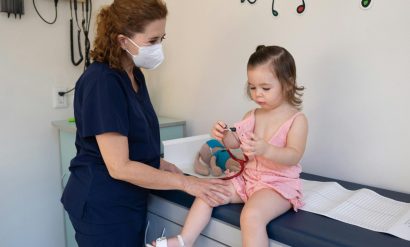
Do educational programmes for healthcare professionals focus on play?
This literature review looked at the evidence to understand how educational programmes for healthcare professionals include the use of play. It found that play is not consistently or systematically integrated into medical education.
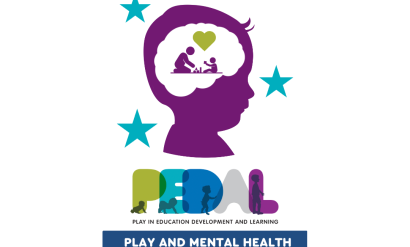
Supporting play for neurodivergent children
In this PEDAL Conference 2023 recording, we hear from Kerry Murphy (Goldsmiths, University of London) and Dr Gina Gomez de la Cuesta and Abi Dodson (Play Included) share their expertise on play and its significance in diverse child development.
